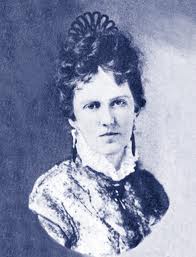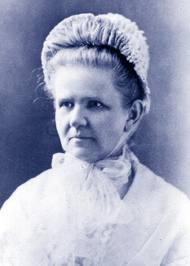 Espionage Sister Style, is the tale of two Virginia born siblings, that perpetuated Rebel Double Trouble, for Union forces and young men in general, during the Civil War. Charlotte and Virginia Moon appeared to be proper young Ohio ladies on the eve of the Civil War, but they were destined to write a new chapter in history as a pair of female Confederate spies and espionage operatives.
Espionage Sister Style, is the tale of two Virginia born siblings, that perpetuated Rebel Double Trouble, for Union forces and young men in general, during the Civil War. Charlotte and Virginia Moon appeared to be proper young Ohio ladies on the eve of the Civil War, but they were destined to write a new chapter in history as a pair of female Confederate spies and espionage operatives.
On the surface, they looked fragile. They were both small, with Lottie(Charlotte) standing at 5 foot and Ginnie(Virginia) only three inches taller. They nevertheless were both strong-willed and spoke their minds. When the Civil War began, Lottie was 31 years old, Ginnie only 16. In the 1830’s, the family had moved to Oxford, Ohio, in the southwestern corner of the state. After the death of the father, Mrs. Moon enrolled Ginnie in the Oxford Female College and moved to Memphis. One of the teachers criticized Ginnie for her Confederate leanings. She dropped out of school and went to live with her sister Lottie and her husband Jim, who were also pro-Southern.
While Ginnie had been at school one of her sister Lottie’s suitors was a young man from nearby Indiana named Ambrose Burnside and sources say that she jilted him at the altar. Lottie finally settled down with Jim Clark, who soon became a judge. Southwestern Ohio had a small but vocal group of Confederate sympathizers. Judge Clark became active in the Knights of the Golden Circle, a Confederate spy ring. Its operatives sometimes visited the Clarks when they were carrying secret messages back and forth. On one occasion, a courier arrived with important dispatches for Confederate General Edmund Kirby Smith in Kentucky.
 Lottie volunteered to carry the messages, her first act of espionage, as a Confederate spy. She disguised herself as an old woman, and headed for Lexington, Kentucky, by boat. She delivered her dispatches to a Rebel officer, and then threw off her costume. Using her acting talents, she tearfully enlisted the aid of a Union general, who helped her return home by train.
Lottie volunteered to carry the messages, her first act of espionage, as a Confederate spy. She disguised herself as an old woman, and headed for Lexington, Kentucky, by boat. She delivered her dispatches to a Rebel officer, and then threw off her costume. Using her acting talents, she tearfully enlisted the aid of a Union general, who helped her return home by train.
By this time, Ginnie had moved to Memphis with her mother. They wrapped bandages and nursed wounded soldiers, as the Yankees got closer to Memphis. In June of 1862, the Union took over the city. Ginnie soon began her own espionage activities, carrying messages and supplies to the Rebels, boldly passing through Union lines on the pretext of meeting a beau.
Meanwhile, Lottie was enjoying such success as a spy that it was decided she should deliver dispatches to Confederate sympathizers in Canada and carry their replies back to the Confederate capital in Richmond. It is said, she even stopped in Washington, D.C., posing as Lady Hull, an English invalid traveling to “take the waters” at White Sulfur Springs in Virginia. She met Secretary of War Edwin Stanton, who, although suspicious, invited her to join him and President Lincoln in a review of the troops. Later, when Stanton learned of Lottie’s deception, he put a $10,000 reward on her head.
When Lottie was stopped on her return trip by General Robert Milroy, who decided to have a surgeon examine her, Lottie gave the performance of her life, unhinging her jaw and joints and even making her heart flutter. She was allowed to continue on.
In 1863, Ginnie and her mother carried messages to the Knights of the Golden Circle, pretending they were only visiting Lottie and Jim. But the Yankees knew that women were being used as Confederate spies. The Moons were preparing to return to Memphis from Cincinnati by boat, but at the last minute an officer entered their cabin with orders to search them.
As Ginnie explained the situation in her memoir,
“There was a slit in my skirt and in my petticoat I had a Colt revolver. I put my hand in and took it out., backed to the door and leveled it at him across the washstand. If you make a move to touch me, I’ll kill you, so help me God!”
Her tactics did no good, but she pulled the message she carried from her bosom,
“dipped it in the water pitcher and in three lumps swallowed it.”
In the provost marshal’s office, Union officers searched Ginnie’s trunks. Inside one of them, they found a very heavy quilt. They ripped it open and found that it was filled with opium, quinine, and morphine, medicines that were badly needed in the Confederate Army.
The Moons were taken to a hotel, where they were put under house arrest. Ginnie immediately requested to see her friend, Union General Ambrose Burnside, the same Ambrose Burnside who had courted Lottie all those years ago. He was the new commander of the Union Department of the Ohio in Cincinnati, and was busily prosecuting Confederate sympathizers in the area. He issued an order that anyone showing Southern leanings were to be tried for treason and that anyone caught helping the Rebels would receive the death penalty.
The following morning, General Burnside sent word that he would see Ginnie. Holding out both hands, Burnside said, “My child, what have you done this for?”
“Done what?” she asked.
“Tried to go South without coming to me for a pass. They wouldn’t have dared stop you.”
Since General Burnside was so understanding, the other officers sought to gain Ginnie’s favor.
“I was asked down to the parlors every evening to meet some of the staff officers and the Yankee women in the parlor looked very indignant to see these officers being so polite to a Secesh woman.”
Lottie arrived at Burnside’s headquarters, dressed in disguise, and tried to convince her old beau to release her mother and her sister, but he supposedly said,
“You’ve forgotten me, but I still remember with pleasure the hours I used to spend with you in Oxford.” And he put her under house arrest, too.
Both sisters were never charged, or imprisoned and after 3 months banished from all travel and ordered to spend the remainder of the war behind Confederate lines.
When the Civil War ended, Lottie and Jim Clark moved to New York, where she became a correspondent for the New York Globe, covering stories from all over the world, she passed away in 1895.
After the war Ginny opened a boarding house for males only in Memphis, over time she moved out of Memphis to Hollywood and is said she acted in two silent films called “The Spanish Dancer” and “Robin Hood”. In her older age Ginny moved to New York and passed away in 1925 at 81 years of age, she was cremated, her ashes brought back to Memphis, where they were interred in the Elmwood Cemetery.
Espionage Sister Style, can be interpreted as a stylized tale of espionage and intrigue during the Civil War. After 150 years some of the story is likely myth, however the character and sophisticaton of Lottie and Ginnie Moon represent the grit and bravado of the Civil War woman and her dedication and perseverance to a given cause.
Bummer

